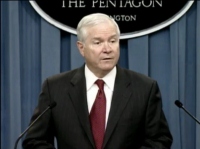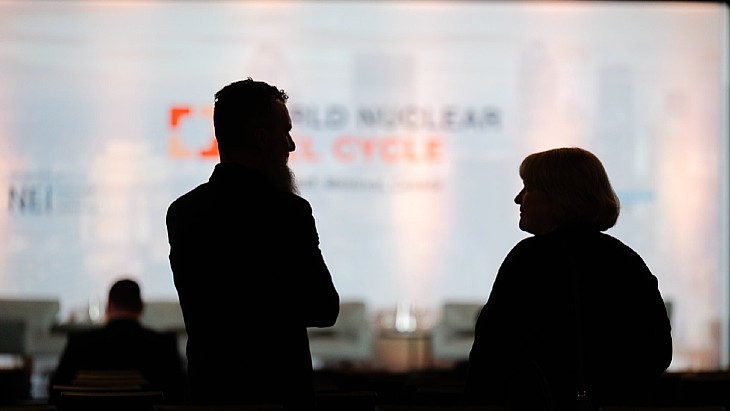USA postures for non-proliferation
![]()
America has put nuclear security, the reduction of the nuclear weapons threat and strengthening the non-proliferation regime at the heart of foreign policy.
America has put nuclear security, the reduction of the nuclear weapons threat and strengthening the non-proliferation regime at the heart of foreign policy.
 |
| Defense Secretary Robert Gates announces the Nuclear Posture Review |
"The United States is declaring that we will not use or threaten to use nuclear weapons against non-nuclear weapons states that are party to the NPT and in compliance with their nuclear nonproliferation obligations," said President Barack Obama.
Because the NPT counts every country in the world as a signatory apart from India, Israel, Pakistan and North Korea, and all of these have either tested nuclear weapons or are suspected of holding them, NPT membership is a good barometer of a country's intentions. Under the NPT, China, France, Russia the UK and USA are recognised as holding nuclear weapons.
However, the definition of 'non-compliance' with NPT commitments is less clear-cut. According to the IAEA statute, declarations of non-compliance can be made by the IAEA board of governors after reports from inspectors on the ground in a given country and these are then to be transmitted to the United Nations General Assembly and Security Council. However, in the past the IAEA board has reported non-compliance without explicit reports from inspectors. In addition, there is currently a dispute between the IAEA and Iran over an amendment to the safeguards agreement which Iran accepted and subsequently reneged on. And it is also unclear at what point a country has cleared its name after a previous non-compliance.
A briefing from White House spokesman Robert Gibbs made it clear that the USA, however, sees Iran as breaking the rules with "provocative steps to avoid its obligations." On that matter, Gibbs said Obama is hoping for United Nations Sanctions to be imposed on Iran before this middle of this year.
Reduction, security and NPT review
The USA has been highly concerned about the small amounts of weapons-usable nuclear materials at various facilities around the world since the events of 11 September 2001, but Obama said yesterday, "for the first time, preventing nuclear proliferation and nuclear terrorism is at the top of America's nuclear agenda, which affirms the importance of the NPT."
On 12 and 13 of this month, leaders from 47 nations will converge in Washington DC to discuss the security of nuclear materials. Obama hopes for a commitment to secure all such materials within four years.
This week will also see a major move in the push to eliminate nuclear weapons when Obama meets Russian President Dmitry Medvedev to sign a new Strategic Arms Reduction Treaty to reduce nuclear weapons stocks on both sides.
And these steps come just weeks before this year's NPT Review Conference in May. The last review was seen as a failure by non-weapons states that complained recognised weapons states were not doing enough to give up their armaments. Obama said yesterday, "Finally we are fulfilling our responsibilities as a nuclear power committed to the NPT. The United States will not conduct nuclear testing and will seek ratification of the Comprehensive Test Ban Treaty. The United States will not develop new nuclear warheads or pursue new military missions or new capabilities for nuclear weapons."
Researched and written
by World Nuclear News



.jpg)






_50521.jpg)

